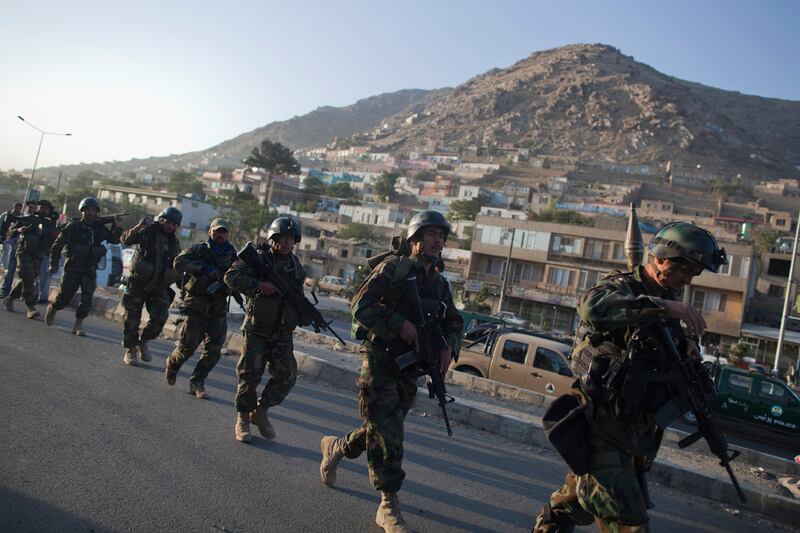“If they give the security responsibilities to the current government at 10:00 a.m., the government will collapse around 12 noon. They cannot live without foreigners.” Those are the words of Nazir Amini, a car dealer caught in Kabul’s Intercontinental Hotel when it was besieged this week by Taliban fighters. We need to take them to heart.
By taking them to heart, I don’t mean that we should delay our exit from Afghanistan because its government cannot stand on its own. Even if we stayed for 20 years, building a government that can stand on its own might be beyond our capacity. We’d go broke trying, and there is little reason to believe the future of this Afghan government is vital to U.S. security. Barack Obama didn’t even say so in his speech.
But Obama did imply that his administration’s surge has so weakened the Taliban that they’ll trade their weapons for negotiations and eventually join the current government, thus allowing the U.S. to leave an Afghanistan headed towards peace. That’s what Mr. Amini was disputing. There’s an honest way to advocate for withdrawal from Afghanistan and a dishonest way. The dishonest way is to suggest that we’ll leave behind a government that can secure the country and a political process than can end the war. The honest way is to acknowledge that the Afghanistan we leave behind will be a chaotic, ugly place where the Taliban rules large swaths of the country, and much of what we have built may be washed away.

The Taliban are not the Vietcong: Ho Chi Minh was a communist who was also Vietnam’s preeminent nationalist leader. Mullah Omar doesn’t have the same appeal; his support is more tribal. But as in Vietnam, American leaders are claiming they can achieve the same outcome with fewer resources. Richard Nixon imagined the U.S. could progressively withdraw American ground troops while still negotiating a deal that kept South Vietnam alive. He could not. As the U.S. withdrew, and the South Vietnamese military crumbled in our wake, our leverage at the negotiating table collapsed. That is likely in Afghanistan as well. The Taliban may never rule the country, but as we withdraw, they will likely expand and consolidate the territory under their domain, and if they negotiate at all, it probably will be on their terms.
The Obama administration has made sure all this takes place after the 2012 election. But sooner or later, he’ll likely have to choose between an unwinnable war and a very nasty withdrawal. Nazir Amini knows that, but I’m not sure most Americans do.





